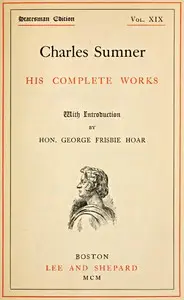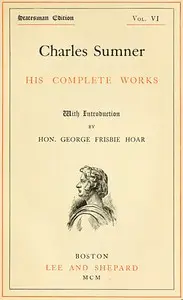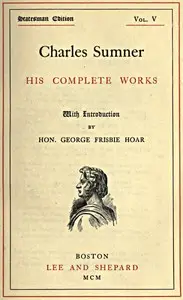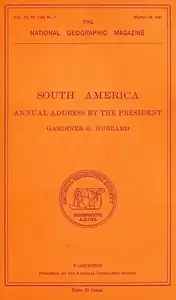"Charles Sumner: his complete works, volume 19 (of 20)" by Charles Sumner is a collection of historical speeches and writings authored in the late 19th century. This volume includes notable pieces discussing civil rights, education, international law, and American politics, reflecting the significant socio-political issues of his time. The book is likely to appeal to readers interested in American history, civil rights advocacy, and political philosophy. The opening of this volume features a speech delivered by Charles Sumner in the Senate regarding the topic of "Colored Schools in Washington," advocating for the abolition of racial distinctions in school admissions. In his passionate address, Sumner argues that principles of equality should extend to education, drawing parallels with historic struggles against racial discrimination in other areas of life, such as the courtroom and public transport. He emphasizes the moral obligation to provide equal educational opportunities for all children, regardless of race, suggesting that the future of society depends on creating an inclusive educational environment. This sets the tone for a compelling examination of the fight for equality and justice in the post-Civil War United States. (This is an automatically generated summary.)

Charles Sumner: his complete works, volume 19 (of 20)
By Charles Sumner
"Charles Sumner: his complete works, volume 19 (of 20)" by Charles Sumner is a collection of historical speeches and writings authored in the late 19t...
Charles Sumner was an American lawyer, politician, and statesman who represented Massachusetts in the United States Senate from 1851 until his death in 1874. Before and during the American Civil War, he was a leading American advocate for the abolition of slavery. He chaired the Senate Foreign Relations Committee from 1861 to 1871, until he lost the position following a dispute with President Ulysses S. Grant over the attempted annexation of Santo Domingo. After breaking with Grant, he joined the Liberal Republican Party, spending his final two years in the Senate alienated from his party. Sumner had a controversial and divisive legacy for many years after his death, but in recent decades, his historical reputation has improved in recognition of his early support for racial equality.


















